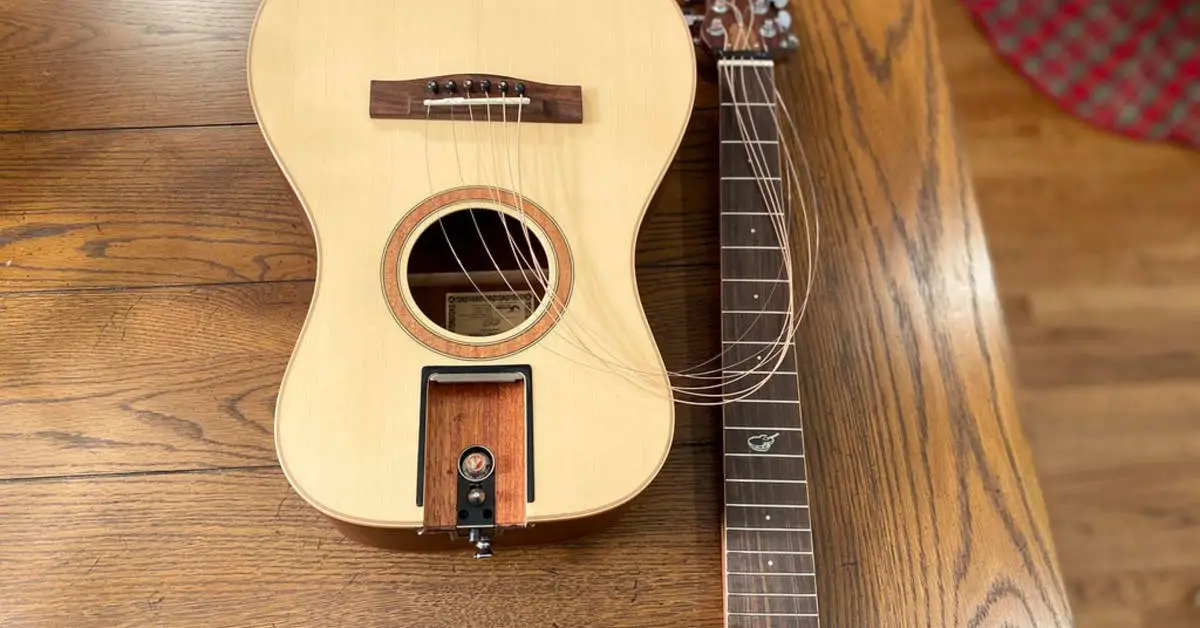The best strings for your travel guitar will depend on the type of travel guitar you have, and what your priorities are with respect to playability and sound.
We explain each of these issues throughout the rest of the article.
Guitar String Playability
When choosing guitar strings it is important to be clear what of music you expect to be playing (for the most part) as this will have an impact on the string thickness that is best for that technique.
Thicker guitar strings require more tension to achieve the same vibration which makes them harder to press down. This also means they are harder to bend (if you are playing play solos and lead guitar). As a result, some find heavier strings better for strumming, but lighter strings better for lead guitar and soloing.
However, if strings are too light for you, they can bend too easily and you can find them moving around more than you would like.
Guitar String Sound
The desired sound from your travel guitar is also an important consideration. If you want to play in front of people then the volume is important, compared to if you are wanting volume to be lower, if you will need to be quiet.
Thicker strings, that require more tension, produce a louder sound, whereas thinner strings tend to be quieter.
Travel Guitar Design
If your travel guitar is just a smaller version of a standard guitar (e.g 3/4 size), then it will be capable of handling any strings you want to try with it.
But if you have a travel guitar that is a modified design, for example, a folding guitar, then there might be some other factors to consider. The travel with radically different designs, especially folding ones, maybe specifically engineered to handle a certain string tension. Given this fact, if you put heavier strings on them you can void your warranty and potentially damage your guitar.
For example, Journey instruments are very clear on what strings their guitars are made for, and which ones will void the warranty of the instrument.
So if you do play a heavily modified type of travel guitar it would be wise to check with the manufacturer’s instructions or website, to see what string thickness they recommend.
There is no concern about the actual brand of strings, as long as the thickness is compatible with the design.
But if you have a standard, but a smaller acoustic guitar, then you should be able to try any strings you would like.
Can I Use Any Guitar Strings On A Travel Guitar?
In many cases, you can use any strings you would like on your travel guitar, but if you are using a heavily modified travel guitar (folding neck), etc, then there may be some manufacturer recommendations about the best strings for that instrument. Also be wary if you use strings that are thicker than recommended by the manufacturer, they can cancel your warranty.

